The Fiqh of Sacrifice (Udhiyah)
Introduction
The practice of Udhiyah, or sacrifice, is a significant ritual in Islam performed during Eid al-Adha. It symbolizes the willingness of Prophet Ibrahim (Abraham) to sacrifice his son Ismail (Ishmael) as an act of obedience to Allah's command. This article explores the rulings and practices of Udhiyah according to the four major schools of Islamic jurisprudence: Hanafi, Maliki, Shafi'i, and Hanbali.
Udhiyah refers to the act of slaughtering specific animals (livestock) during the days of Eid al-Adha with the intention of seeking closeness to Allah. This practice is supported by the Quran and the Sunnah.
Udhiyah was legislated in the second year of Hijrah, the same year in which the Eid prayers and Zakat al-Mal were mandated. It is supported by the Quran, the Sunnah (both verbal and practical), and the consensus of scholars.
Allah says:
"So pray to your Lord and sacrifice [to Him alone]" (Al-Kawthar: 2).
The Prophet Muhammad (PBUH) regularly performed Udhiyah and personally slaughtered his sacrificial animals. Anas ibn Malik (RA) narrated:
"The Prophet (PBUH) sacrificed two white rams speckled with black. He slaughtered them with his own hand, said 'Allah-u-Akbar (Allah is the Greatest),' and placed his foot on their sides." (Agreed upon).
Aisha (RA) reported that the Prophet (PBUH) said:
"Bring me the knife," then he said, "Sharpen it with a stone." When she did, he took it, laid the ram down, and said, "In the name of Allah, O Allah, accept [this sacrifice] from Muhammad, the family of Muhammad, and the Ummah of Muhammad," then he sacrificed it. (Muslim).
The Prophet (PBUH) said:
"The first thing we do on this day (Eid) is to pray; then we return and slaughter the sacrifice. Whoever does this has followed our Sunnah; and whoever slaughtered before the prayer, it is just meat for his family and not a sacrifice." (Agreed upon).
Wisdom Behind Udhiyah
Gratitude: Udhiyah is a means of showing thankfulness to Allah for His countless blessings.
Reviving Ibrahim’s Tradition: It commemorates Prophet Ibrahim's willingness to sacrifice his son Ismail (peace be upon them) in obedience to Allah’s command.
Charity and Community: Udhiyah promotes sharing and charity, ensuring that family, neighbors, and the poor are provided for during Eid.
Spiritual Significance: Udhiyah commemorates the obedience and submission of Prophet Ibrahim and Prophet Ismail to Allah's command.
Personal Reflection: The act of sacrifice serves as a reminder of the individual's devotion and willingness to submit to Allah's will.
The Prophet Muhammad (PBUH) said:
"There is nothing dearer to Allah during the days of sacrifice than the sacrificing of animals. The sacrificed animal shall come on the Day of Judgement with its horns, hair, and hooves (to be weighed). The sacrifice is accepted by Allah before the blood reaches the ground. Therefore, sacrifice with an open and happy heart." (Tirmidhi).
Rulings on Udhiyah
Obligation: According to the Hanafi school, Udhiyah is wajib (obligatory) for every financially able Muslim who is not traveling. This ruling is based on the Quranic verse and the consistent practice of the Prophet Muhammad (PBUH), who performed the sacrifice every year.
They argue that the command in the verse "So pray to your Lord and sacrifice [to Him alone]" (Al-Kawthar: 2) implies obligation. Additionally, a hadith states:
"Whoever can afford to offer a sacrifice but does not do so, let him not approach our place of prayer." (Ibn Majah).
According to Maliki, Shafiie an d Hanbali Schools Udhiyah as a highly recommended tradition (Sunna Muaakkada) but not obligatory for those who can afford it.
The Prophet (PBUH) said:
"When the ten days [of Dhul-Hijjah] start, and one of you intends to offer a sacrifice, let him not cut his hair or nails" (Muslim).
Abu Bakr and Umar (RA) refrained from offering Udhiyah in some years to avoid it being seen as obligatory, indicating their understanding from the Prophet (PBUH) that it was not mandatory.
Conditions for Udhiyah:
General and Specific Conditions
Udhiyah has conditions that apply to all sacrifices and some that are specific to it. These conditions are categorized into three types: conditions related to the sacrificial animal, the person offering the sacrifice, and the timing of the sacrifice.
Type of Animal:
- The animal must be from the livestock (camel, cattle, sheep, goats). Both males and females are acceptable.
- Any other edible animals, such as birds or other livestock, are not acceptable based on the Quranic verse: "And for every nation We have appointed religious ceremonies, that they may mention the name of Allah over the beast of cattle that He has given them for food" (Al-Hajj: 34). The Prophet Muhammad (PBUH) also never sacrificed animals other than livestock.
Number of People:
- A sheep suffices for one person.
- A camel or a cow suffices for up to seven people. As narrated by Jabir (RA): "We slaughtered with the Messenger of Allah (PBUH) at Al-Hudaybiyah a camel for seven people and a cow for seven people." (Muslim).
Age of the Animal:
- The animal must meet the age requirement: a mature animal (a year old for sheep and goats, two years for cattle, five years for camels). As the Prophet Muhammad (PBUH) said: "Do not slaughter except a mature animal, unless it is difficult for you, then slaughter a young sheep (six months old)." (Muslim).
-
- Cattle: Two years old.
- Camels: Five years old.
Sheep & Goats: Jadha' (Young Sheep) and Thaniyah (Mature Goat) can be sacrificed. But there are difference of opinions among schools on it exact age.
Shafi'i School: A sheep must be at least one year old and have entered its second year, or it should have lost its front teeth before one year. Imam Al-Ramli stated: "If a sheep loses its front teeth before completing a year, it is valid for Udhiyah" (Nihayat al-Muhtaj). But for goat, it should have completed two lunar years.
Hanafi School: A sheep can be sacrificed at six months if it has substantial meat and appears similar to a year-old sheep from a distance. As mentioned in "Al-Durr al-Mukhtar": "A six-month-old sheep is valid if it looks like a one-year-old from a distance." But for goat, it should have completed one lunar year as per the Hanafi shcool.
Maliki School: A sheep is considered Jadha' and fit for sacrifice if it has completed one lunar year and has entered the second year, even if only by a short period. According to common interpretation, if a sheep was born on the Day of Arafah, it can be slaughtered on the Day of Eid. A goat is considered Thaniyah if it has completed one lunar year and has clearly entered the second year, such as by at least one or two months. (Reference: "As-hal al-Madarik")
Hanbali School: A six-month-old sheep is always valid for Udhiyah if it is free of defects. Imam Al-Mardawi said: "Only a six-month-old sheep is sufficient. This is the majority view" (Al-Insaf). For goat, it will be sufficient if it has completed one lunar year.
Timing for Slaughtering Udhiyah (Sacrifice)
The time for slaughtering Udhiyah starts after the Eid al-Adha prayer and varies slightly among the four schools of Islamic jurisprudence:
- Hanafi: Begins after the Eid prayer for city dwellers; for villagers without an imam, it starts after dawn on the Day of Sacrifice.
- Maliki: Starts after the Eid prayer and sermon, typically after the imam's sacrifice.
- Shafi'i: Begins after the time needed for two units of prayer and two brief sermons following the Eid prayer.
- Hanbali: Begins after the Eid prayer and sermon for city dwellers; for others, after the equivalent time of the prayer and sermon.
The period for slaughtering extends to the end of the days of Tashreeq, with the Hanafi, Maliki, and Hanbali schools allowing up to the second day of Tashreeq, while the Shafi'i school and some Hanbali opinions extend it to the end of the third day of Tashreeq.
Share in Udhiya
A single sheep can suffice for the person offering the sacrifice and their household, as the Prophet Muhammad (PBUH) sacrificed a sheep for himself and his family. But no more than one person can share a sheep by paying its price.
Imam Nawawi says in Al-Majmooa’ Sharah Al-Muhadhab
“Our scholars have stated that offering a sacrifice (Udhiyah) is a collective Sunnah for the members of one household. If one member performs the sacrifice, it fulfills the Sunnah for all. Al-Rafi’i mentioned that one sheep is only sacrificed on behalf of one person. However, if a member of the household sacrifices it, the ritual and Sunnah extend to all. This is based on the narration where the Prophet (PBUH) sacrificed two rams and said, "O Allah, accept this from Muhammad and the family of Muhammad." Just as obligatory acts are divided into individual and collective obligations, the scholars have noted that Udhiyah is similarly divided and recommended for every household.”
But a camel or cow can be shared by seven people, whether they belong to the same household or not. This is based on the hadith narrated by Jabir (RA): "We slaughtered with the Prophet (PBUH) at Al-Hudaybiyah a camel for seven people and a cow for seven people" (Muslim).
The sacrificial animal for Udhiyah must be free from major defects that could reduce its meat or fat, with specific exemptions. These defects include blindness, obvious blindness in one eye, complete or significant loss of the tongue, cut or missing nose and ears, obvious limping, amputated limbs, damaged udder, cut or missing tail, sickness with visible symptoms, extreme thinness, milkless due to treatment, and those that only eat dung unless isolated for a specific period. Defects not listed do not affect the validity of the sacrifice. The basis for these conditions is found in hadiths, including those by Abu Dawood and Ahmad.
The basis for these conditions is the hadith stating: "Four things do not qualify for Udhiyah: clearly blind, clearly sick, clearly lame, and extremely thin" (Abu Dawood). Also, Ali (RA) reported that the Prophet (PBUH) instructed to inspect the eyes and ears (Ahmad).
Recommended Practices:
- Preparing the Animal: It is recommended to tie the sacrificial animal a few days before Eid to show readiness for the ritual and earn rewards.
- Marking the Animal: Similar to Hajj, the animal can be marked to signify its importance. Allah says, "And whoever honors the symbols of Allah - indeed, it is from the piety of hearts" (Al-Hajj: 32).
- Gentle Handling: The animal should be led to the slaughter place gently, without force. The Prophet Muhammad (PBUH) said, "Allah has decreed kindness in everything. When you kill, kill well; and when you slaughter, slaughter well. Let one of you sharpen his blade and spare suffering to the animal he slaughters" (Muslim).
- Refraining from Grooming: The person offering the sacrifice should not cut their hair or nails from the start of Dhul-Hijjah until the sacrifice. Umm Salama (RA) reported that the Prophet (PBUH) said, "When the ten days [of Dhul-Hijjah] start, and one of you intends to offer a sacrifice, let him not cut his hair or nails" (Muslim).
- Personal Involvement: The sacrificer should ideally perform the slaughter themselves if they are able, and if not, they should at least be present. The Prophet (PBUH) told Fatimah (RA), "O Fatimah, stand by your sacrificial animal and witness it" (Al-Hakim).
- Reciting Prayers: It is recommended to recite specific prayers before the sacrifice.
Jabir – narrates , The Prophet (PBUH) said when he sacrificed two sheeps ,
«إِنِّي وَجَّهْتُ وَجْهِيَ لِلَّذِي فَطَرَ السَّمَوَاتِ وَالْأَرْضَ عَلَى مِلَّةِ إِبْرَاهِيمَ حَنِيفًا، وَمَا أَنَا مِنَ الْمُشْرِكِينَ، إِنَّ صَلَاتِي وَنُسُكِي وَمَحْيَايَ وَمَمَاتِي للهِ رَبِّ الْعَالَمِينَ لَا شَرِيكَ لَهُ، وَبِذَلِكَ أُمِرْتُ وَأَنَا مِنَ الْمُسْلِمِينَ، اللَّهُمَّ مِنْكَ وَلَكَ، وَعَنْ مُحَمَّدٍ وَأُمَّتِهِ بِاسْمِ اللهِ، وَاللهُ أَكْبَرُ»
"Indeed, my prayer, my rites of sacrifice, my living and my dying are for Allah, Lord of the worlds. No partner has He. And this I have been commanded, and I am the first [among you] of the Muslims. O Allah, [this sacrifice] is from You and for You, on be half of of Muhammad and his nation, in the name of Allah, Allah is the greatest"
It is recommended, after saying the name of Allah (Bismillah), to say "Allahu Akbar" (Allah is the Greatest) three times, to send blessings and peace upon the Prophet Muhammad (PBUH), and to pray for the acceptance of the sacrifice.
- (Abu Dawood).Ensuring Complete Death: Wait until the animal is fully dead before skinning or cutting it. Do not rush to sever the spinal cord.
Intention for Sacrifice:
The intention (niyyah) for the sacrifice is essential because the act of slaughtering can be for meat or for religious purposes. The Prophet Muhammad (PBUH) said, "Actions are but by intentions, and every man shall have only what he intended" (Bukhari).
The intention should either be made at the time of slaughtering or when designating the animal for sacrifice, whether by purchasing it or selecting it from one's own livestock. This intention is sufficient and is the preferred opinion in the Shafi'i school. The Hanafi, Maliki, and Hanbali schools agree that a prior intention at the time of purchase or designation is sufficient for the sacrifice.
Imam Nawawi says: If a person appoints an agent and makes the intention at the agent's act of slaughter, this suffices, and the agent's intention is not necessary. Even if the agent is unaware it is a sacrifice, it does not invalidate it. If the intention is made only when handing over to the agent, it depends on the views regarding the timing of intention. Delegating the intention to a Muslim agent is allowed.
Scholars have different opinions on the necessity of saying "Bismillah" at the time of the slaughter of sacrificial animals and hunting. According to the Shafi'i school, it is a Sunnah (recommended practice), and omission—whether intentional or accidental—does not affect the meat's permissibility. The Hanafi and Maliki schools hold that it is a condition for permissibility if remembered, but not if forgotten. The Hanbali school has three opinions, with the most prominent being that it is necessary; if omitted, the meat is considered carrion, not fit for halal consumption.
Distribution of Meat
It is recommended that the person offering the sacrifice distributes the meat as follows: one-third to their household, one-third as a gift among neighbors and relatives, and one-third as charity to those who ask for it.
- For the household: A portion for the one performing the sacrifice and their family.
- Gift for relatives and neighbors: A portion to be shared with friends and neighbors.
- Chairty For the needy: A portion to be given to the poor and needy.
This is based on the Quranic verse, "So eat of them and feed the miserable and poor" (Al-Hajj: 36). Ibn Umar also stated, "One-third for you, one-third for your family, and one-third for the poor."
The Prophet (PBUH) said, "I used to forbid you to store the sacrificial meat for more than three days so that there would be enough for everyone. Now you may eat, give some to others, and store some" (Ahmad).
The obligation to give part of the Udhiyah meat as charity is a point of difference among Islamic scholars. The Shafi'i and Hanbali schools mandate giving some of the meat as charity, while the Maliki and Hanafi schools consider it recommended but not obligatory.
Imam Nawawi, a Shafi'i scholar, explains that giving charity from the Udhiyah meat is essential for fulfilling the ritual's purpose of benefiting the poor. Hanbali scholars also emphasize the need to donate part of the meat to a Muslim in need, as outlined in their texts. Conversely, the Hanafi school stresses the recommendation to eat, share, and donate the meat but permits keeping it all if desired. This flexibility is supported by historical practices and the Prophet's instructions, which allowed for charity while also emphasizing communal sharing during the festive period.
The Maliki school considers it disliked (makruh) to feed non-Muslims from the sacrificial meat, with Imam Malik stating that it is preferable to give it to others. The Shafi'i school holds that it is forbidden to give sacrificial meat to non-Muslims, However, some scholars permit giving the meat to non-combatant non-Muslims.
Ibn Qudamah, Al-Hanbali stated, "It is permissible to feed a non-Muslim from the sacrificial meat... because it is considered voluntary charity, and thus it is permissible to give it to a dhimmi (non-Muslim living under Muslim rule) or a prisoner, just like other voluntary charity." (Al-Mughni, 9/450)
Disclaimer
The views expressed in this article are the author’s own and do not necessarily mirror Islamonweb’s editorial stance.

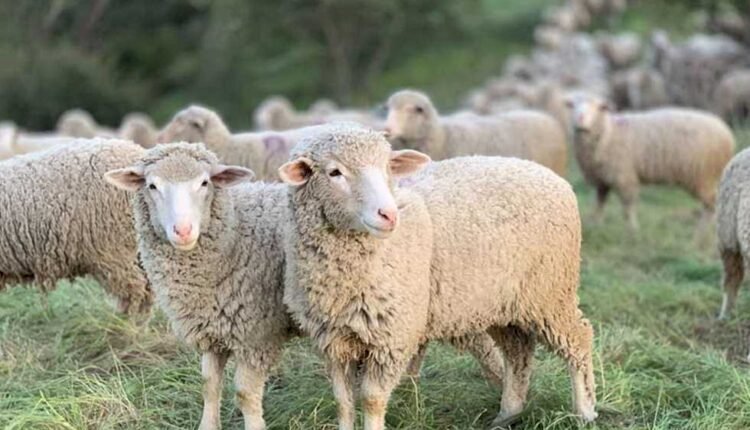


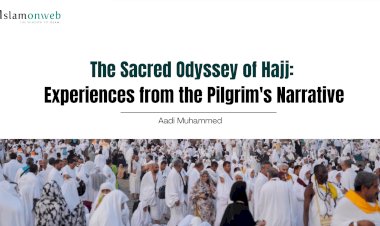
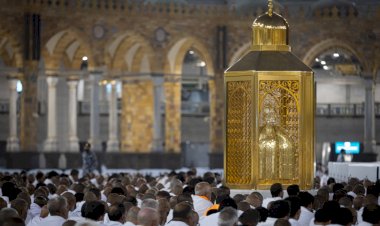
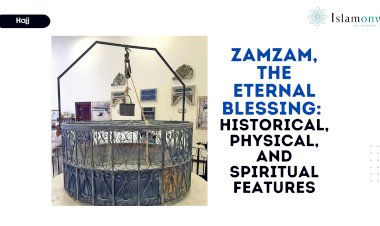
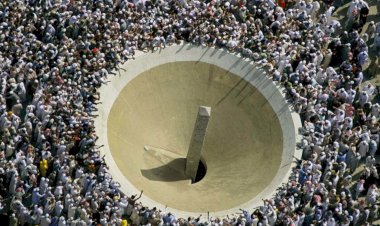
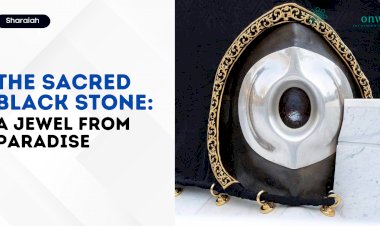
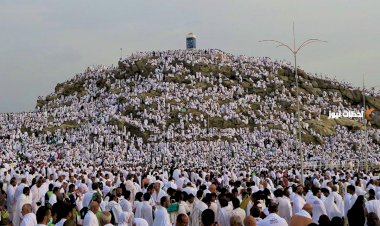














Leave A Comment